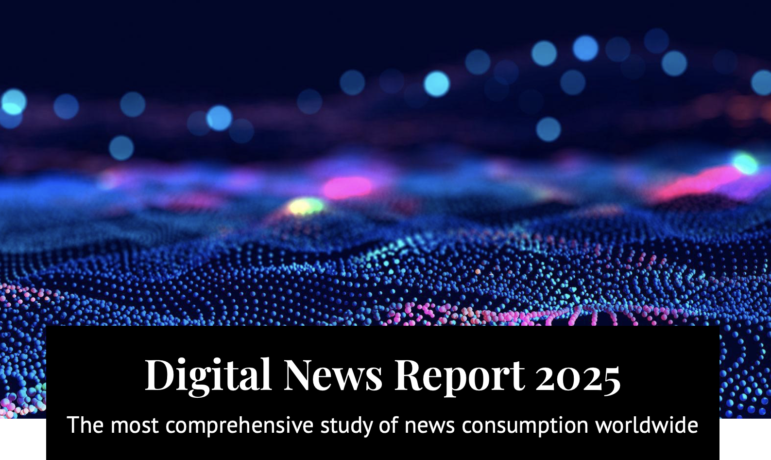Listen to the article
Public Trust Erodes as Misinformation Spreads, Yet Investigative Journalism Remains Valued
The global media landscape is undergoing profound shifts in consumption habits and trust levels, according to the newly released 2025 Reuters Institute Digital News Report. The comprehensive study reveals a growing public skepticism toward news sources while simultaneously highlighting a strong appetite for investigative journalism that holds power accountable.
This year’s report surveyed news consumers across 48 markets on six continents, including Serbia for the first time, providing the most expansive global overview of digital news consumption trends to date.
Traditional media platforms continue to lose ground as consumers increasingly turn to social media and podcasts for news content. Video-based news consumption is surging, with YouTube and TikTok “influencers” emerging as popular news filters and aggregators. These online personalities rarely conduct original reporting, instead repackaging journalism from established media outlets.
Despite their growing popularity, these influencers face significant trust issues. The report identifies them as among the top sources of misinformation globally, with 47% of respondents citing them as major threats for spreading false information – equal to the perceived threat from national politicians. News media and journalists weren’t immune from criticism either, with 32% of respondents viewing them as significant sources of misinformation.
The findings reflect a broader crisis of trust, with 58% of respondents expressing difficulty in distinguishing between truth and falsehood online. This erosion of confidence comes at a time when accurate information is increasingly vital for functioning democracies.
However, the report offers a potential path forward for quality journalism. When seeking to verify dubious claims, 38% of respondents said they turn to “a news source I trust” as their primary verification method, while fact-checking websites ranked fourth at 25%. Notably, AI chatbots – with their documented tendency to fabricate information – were the least trusted verification source at just 9%.
“Respondents wanted journalists to spend their time investigating powerful people and providing depth rather than chasing algorithms for clicks,” the report noted, suggesting a public hunger for substantive accountability reporting over clickbait content.
The podcast medium stands out as a particularly bright spot for quality journalism. In the United States, 15% of respondents reported listening to news podcasts weekly, placing the format on par with popular social platforms like Instagram (19%), WhatsApp (19%), TikTok (16%), and X/Twitter (12%). Nearly three-quarters of podcast listeners (73%) said the medium helped them understand issues more deeply than other formats.
Perhaps most encouragingly for the journalism industry, podcast audiences showed greater willingness to pay for high-quality, in-depth reporting. As one 23-year-old British respondent explained: “If a podcast offered unique investigative journalism, expert-led discussions, or deep analysis beyond standard news coverage, I might consider paying for it.”
This openness to supporting quality journalism financially comes as news organizations worldwide struggle with sustainable business models in the digital age. The findings suggest that investing in substantive investigative work could not only fulfill a democratic function but also attract paying supporters.
The report’s revelations come amid growing global concern about information integrity in democratic societies. With the rise of generative AI tools and increasingly sophisticated manipulation techniques, the ability to discern credible information becomes ever more crucial for informed citizenship.
For news organizations, the report presents both challenges and opportunities. While trust in traditional media continues to decline, the public’s desire for reliable, in-depth reporting creates an opening for outlets that prioritize investigative journalism and accountability reporting over sensationalism and algorithm-driven content strategies.
As news consumption continues fragmenting across platforms, the findings suggest that quality and credibility – rather than speed or spectacle – may ultimately determine which news providers thrive in an increasingly complex information ecosystem.
Verify This Yourself
Use these professional tools to fact-check and investigate claims independently
Reverse Image Search
Check if this image has been used elsewhere or in different contexts
Ask Our AI About This Claim
Get instant answers with web-powered AI analysis
Related Fact-Checks
See what other fact-checkers have said about similar claims
Want More Verification Tools?
Access our full suite of professional disinformation monitoring and investigation tools



